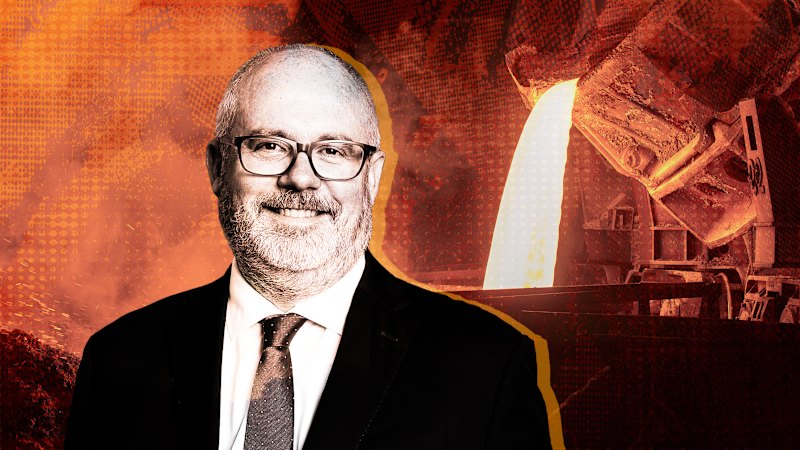
The Australian government is developing a national strategy to support struggling metals smelters, potentially providing taxpayer-backed equity injections and long-term loans. This initiative aims to address the challenges faced by facilities across the country, as soaring energy costs and trade distortions, particularly from China, threaten their viability.
Industry Minister Tim Ayres emphasized the responsibility of profitable firms in navigating these difficulties. He acknowledged that while these companies have benefited significantly from their operations in Australia, many key smelters may require government assistance to survive. “The truth is, if these facilities didn’t exist, governments would be trying to build them,” Ayres stated in an interview with The Australian Financial Review.
The future of approximately a dozen smelters and refineries, which produce metals such as aluminium, lead, copper, and manganese, is in jeopardy. Some facilities have already ceased operations. Current negotiations involve federal and state governments working to secure aid for the Tomago aluminium smelter in New South Wales, Glencore’s copper smelter in Mount Isa, Queensland, and two plants owned by Nyrstar Australia in Hobart and Port Pirie, South Australia. There are also concerns regarding the sustainability of Rio Tinto’s aluminium smelter in Bell Bay, Tasmania.
Concerns have been raised about the potential for taxpayer bailouts of uneconomic energy-intensive manufacturers. Ayres, while open to assisting firms in distress, reiterated that the primary responsibility lies with them. “I want to make sure you know that the initial responsibility starts with them,” he remarked, indicating that there may be a need for increased capital investment from the facility owners.
The government’s strategy aims to protect jobs and regional economies while addressing national security issues related to critical manufacturing capabilities. Ahead of the economic reform roundtable involving Treasurer Jim Chalmers in August 2023, Ayres plans to convene discussions with state governments, industry representatives, and unions to determine the best path forward.
Three main areas of focus have emerged in the government’s planning. The first is addressing immediate challenges facing smelters. The second is assessing how these facilities align with Labor’s Future Made in Australia industry policy, and the third is establishing a connection between immediate needs and long-term strategies.
For example, a proposed bailout for Nyrstar’s facilities, amounting to approximately $135 million, is expected to be announced soon. This funding will be shared among the federal, Tasmanian, and South Australian governments, with specific conditions on its use. However, details regarding the final support amount and conditions are still being finalized, and any agreement may take two to three weeks to complete due to necessary approvals.
Nyrstar Australia Chief Executive Matt Howell stated last Thursday that discussions regarding the future of the Port Pirie lead smelter and Hobart zinc smelter remain ongoing, with no decisions made yet. In addition to short-term financial support, Nyrstar is also pursuing tens of millions of dollars for upgrading its facilities to produce critical metals, which are increasingly in demand as countries strive to enhance their manufacturing independence.
Howell, who took over as CEO in January 2023, has drawn parallels between the current situation and a government package initiated in 2021 to support the oil refining sector, which successfully prevented the closure of the last two refineries in Australia. While both the federal and Tasmanian governments had previously committed to supporting the refining industry, these efforts were halted late last year due to rising costs.
Calls for a comprehensive national strategy have gained traction, particularly from the Australian Workers’ Union (AWU), which represents many employees at the affected sites. AWU National Secretary Paul Farrow expressed support for a smelting strategy under the Future Made in Australia policy, advocating for equity or long-term loans for businesses impacted by global market distortions.
As discussions progress, the Coalition is also expected to propose a long-term plan aimed at preserving thousands of jobs and maintaining critical manufacturing capabilities in Australia. The outcome of these negotiations and the government’s strategy will be closely watched as the nation seeks to stabilize its metals industry amid ongoing global challenges.






